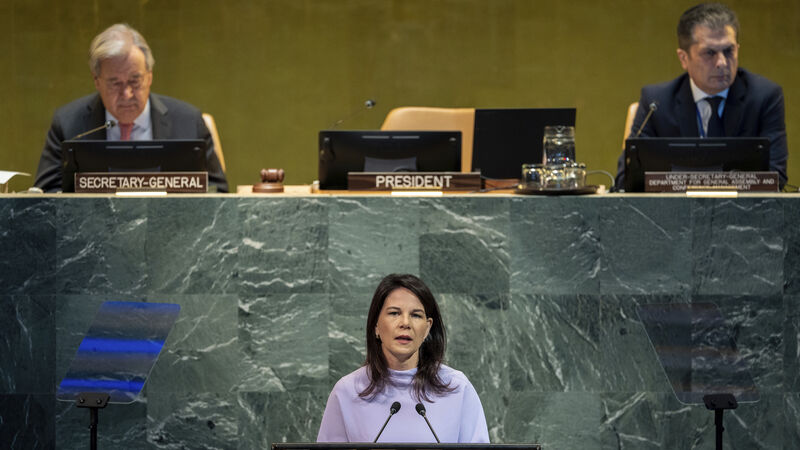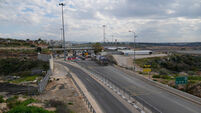Paul Hosford: How will UN answer questions of its ability to solve the world's crises?

Annalena Baerbock, the president of the 80th session of the United Nations General Assembly (UNGA), addresses the 80th session of the UN General Assembly at United Nations headquarters. Picture: Angelina Katsanis/PA
What is the point of institutions such as the UN?
Questions like this have long been posed, but as the world watches a streamed genocide in Gaza, a nuclear superpower attempting to annex its neighbour in Ukraine, and conflicts in Sudan, Syria, Somalia, Afghanistan and more, the question of whether these institutions are fit for purpose has never seemed so urgent.
















